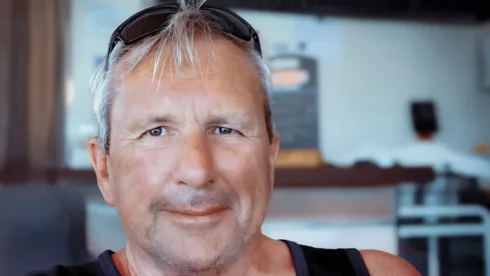Madrid’s Hospital Universitario 12 de Octubre is one of the first in Spain to offer a new ‘scar-free’ treatment for non-melanoma skin cancer which acts within weeks.
Developed by pharmaceutical company OncoBeta, the cream has 89% remission rates within just one session.

Now, patients in Spain can access the so-called Rhenium-SCT (Skin Cancer Therapy), with the first cohort treated at the hospital in June.
Initial results are promising. Patients have shown no signs of recurrence or side effects.
Long-term studies also support its efficacy, with one trial showing all 55 patients achieving complete lesion healing and remission over a 12-month period.
According to OncoBeta, the cream promotes scar-free healing, with tissue regeneration typically occurring within weeks.
How Does Rhenium-SCT Work?
Rhenium-SCT emits radiation which can penetrate a few millimetres into the skin when applied to the surface of a tumour, causing the death of the tumour cells.

Surrounding healthy tissue is left ‘unharmed’ thanks to this precise targeting and there are minimal side effects seen with this treatment.
The cream is applied by a medical professional using a specifically designed applicator. The cream will then be left on the cancerous area for a period calculated specifically for each patient, depending on the size of the patient’s tumour (anywhere between 30 minutes to three hours).
The cream is then removed, and the patient is free to return home.
Who Can Benefit?
Rhenium-SCT is used for non-melanoma skin cancers, the most common form of skin cancer, with an estimated 5 million cases annually.
In Spain, the incidence rate is 8.82 per 100,000 people per year, with coastal regions particularly affected due to high UV exposure, the leading cause of non-melanoma skin cancer.
While surgery is still the standard treatment, it’s not suitable for everyone. Elderly patients, for instance, may face risks from surgery and anaesthesia due to age-related health conditions.
For those concerned about scarring, especially when skin cancer occurs on the face, Rhenium-SCT offers a scar-free alternative with minimal aesthetic impact. It also boasts fewer side effects than traditional radiation therapy, which can damage surrounding healthy tissues.
Dr. Lutz-Hendrik Holle, Medical Director of Nuclear Medicine in Hanau, notes, “This therapy is particularly suitable for tumor localisations where good cosmetic results are to be achieved. The fact that the treatment is completely painless and can be performed in just one session is a great advantage.”
So far, the treatment shows high success rates. OncoBeta reports an 89% remission rate after just one session, with only 11% of patients needing one or two follow-up treatments. Medical professionals are calling it a fast, painless, and safe alternative to surgery.
Hospital Universitario 12 de Octubre is one of the first centres in Southern Europe to use this treatment, however, it remains to be seen whether the treatment is adopted more broadly throughout Spain.
Sources:
https://www.oncobeta.com/our-products/rhenium-sct
https://www.oncobeta.com/fileadmin/user_upload/brochures/Rhenium-SCT-FAQ-Medical-Staff-EN_E.pdf
https://www.tandfonline.com/doi/full/10.1080/09546634.2020.1793890#abstract
https://onlinelibrary.wiley.com/doi/pdf/10.1111/ijd.16618








